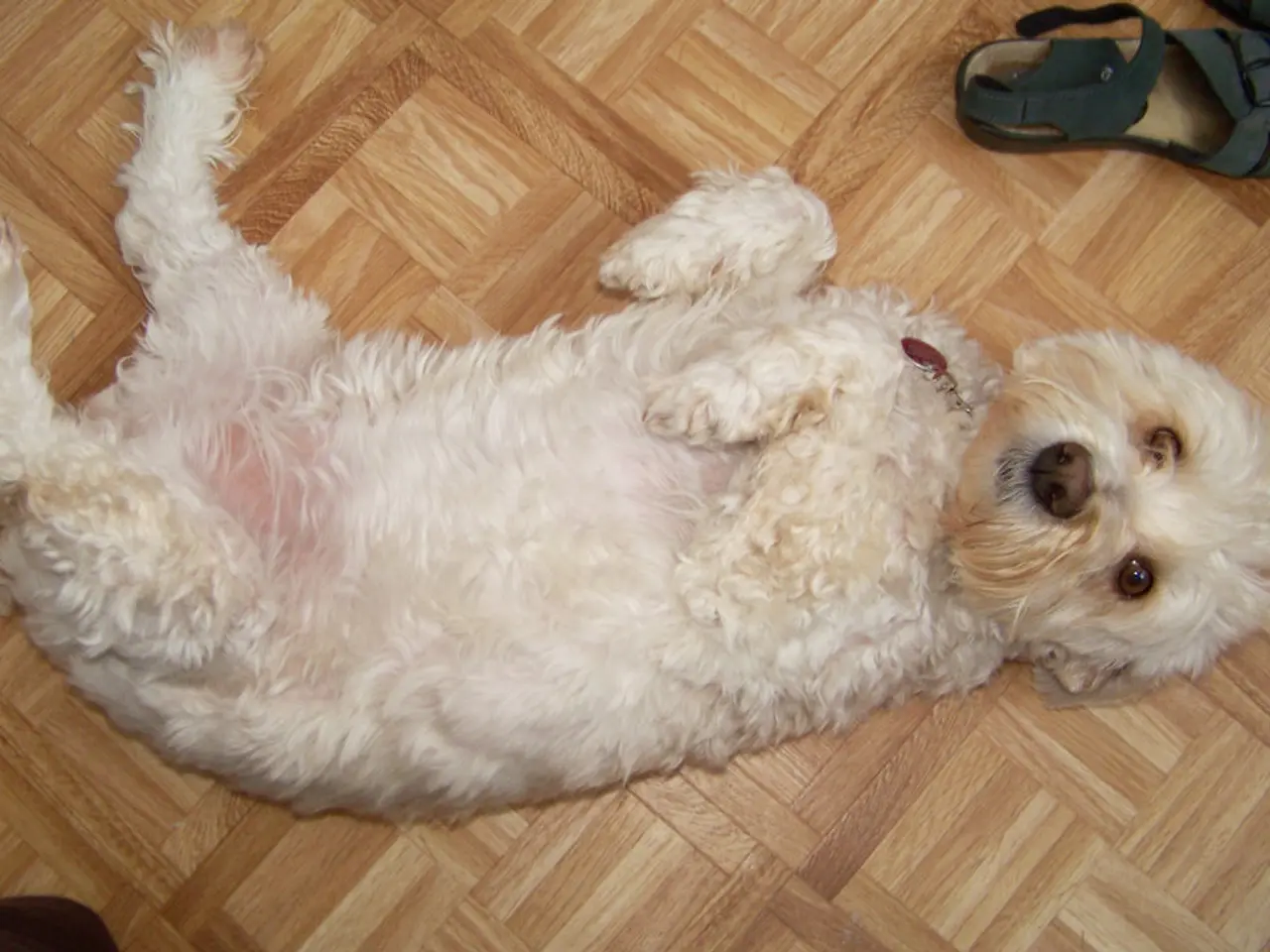Reasons Behind Canine Paw Licking: 9 Possible Causes and Treatment Approaches
In dogs, excessive paw licking can be a sign of various underlying health issues. Some common causes include allergies, both environmental and food-related, skin infections (bacterial or fungal), parasites such as fleas, ticks, and mites, injuries and foreign bodies like grass seeds, cysts, tumors, and emotional factors like anxiety [1][2][3][4][5].
Allergies are a common culprit, with dogs showing sensitivity to common proteins like chicken, beef, or pork [3]. Allergic reactions can lead to itchiness and irritation on a dog's paws, prompting them to lick excessively. In some cases, dogs may be allergic to environmental factors like grass pollens, tree pollens, house dust mites, or flea bites [6].
Bacterial infections can also cause a dog to lick, as they can lead to discomfort and pain in the affected area [7]. Similarly, dogs may lick their paws after scratching their ears due to sniffing and analyzing the odor, particularly in cases of ear infections [8].
Foreign bodies embedded in a dog's paw, such as grass seeds, can cause irritation and inflammation, leading to excessive licking [9]. If a dog has damaged claws, it may be sore, causing them to lick or nibble at the affected foot [10].
Treatment options depend on the cause. For allergies, avoiding allergens when possible and using antihistamines or prescribed allergy medications may help [2][3][5]. Bacterial or yeast infections often require medicated topical treatments, antibiotics, or antifungal medications as prescribed by a veterinarian [1][4]. Parasites can be treated with appropriate parasite control like tick and flea preventatives and sometimes medicated shampoos or systemic drugs [1][4].
Injuries and foreign bodies may require careful removal of any foreign material, treatment of wounds or nail injuries, and in some cases, veterinary care for proper trimming or cleaning [1][5]. Cysts and tumors may require veterinary evaluation and potential surgical removal [1].
For dogs suffering from anxiety or behavioral licking, addressing underlying stressors and considering behavioral modification or calming therapies under veterinary guidance can be beneficial [4]. In some cases, using a buster or Elizabethan collar can help temporarily prevent a dog from licking its paws.
Since excessive paw licking can worsen infections and delay healing, early veterinary consultation is important to identify and effectively treat the underlying cause and prevent complications [2][3][4]. It's always best to consult a vet rather than using over-the-counter remedies for red, excessively licked paws.
Dogs may lick their paws before bed as a way of self-soothing and relaxing, but excessive licking may indicate an underlying issue. If you notice your dog licking its paws excessively, it's essential to consult a vet to determine the cause and begin appropriate treatment.
- Allergies to proteins like chicken, beef, or pork can cause itchiness on a dog's paws, leading to excessive licking [3].
- Bacterial infections can make a dog's paws uncomfortable, prompting them to lick excessively [7].
- Dogs may lick their paws after scratching their ears due to ear infections [8].
- Foreign bodies, such as grass seeds, can cause irritation and prompt a dog to lick its paw continuously [9].
- Treatment for a dog's allergies may include avoiding the allergen and using prescribed allergy medications [2][3][5].
- Bacterial or yeast infections often require medicated topical treatments, antibiotics, or antifungal medications from a veterinarian [1][4].
- Addressing anxiety and behavioral licking in dogs can be resolved through identifying underlying stressors and considering behavioral modification under veterinary guidance [4].




